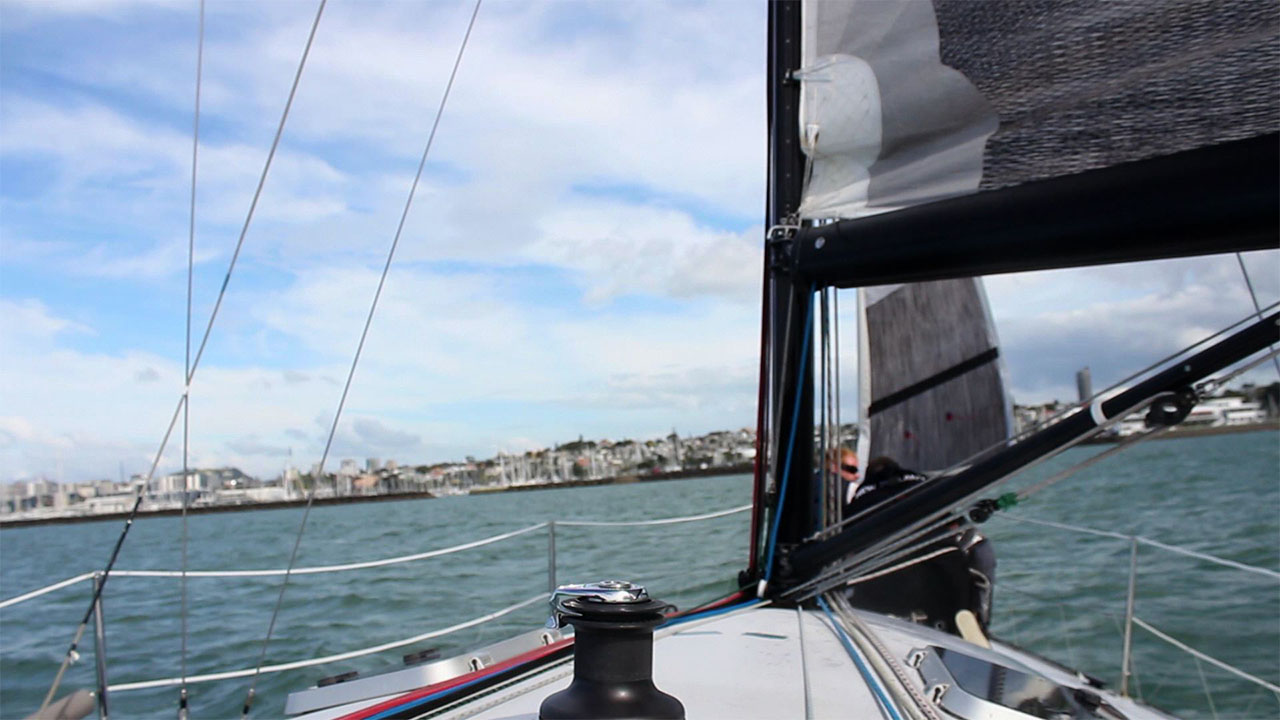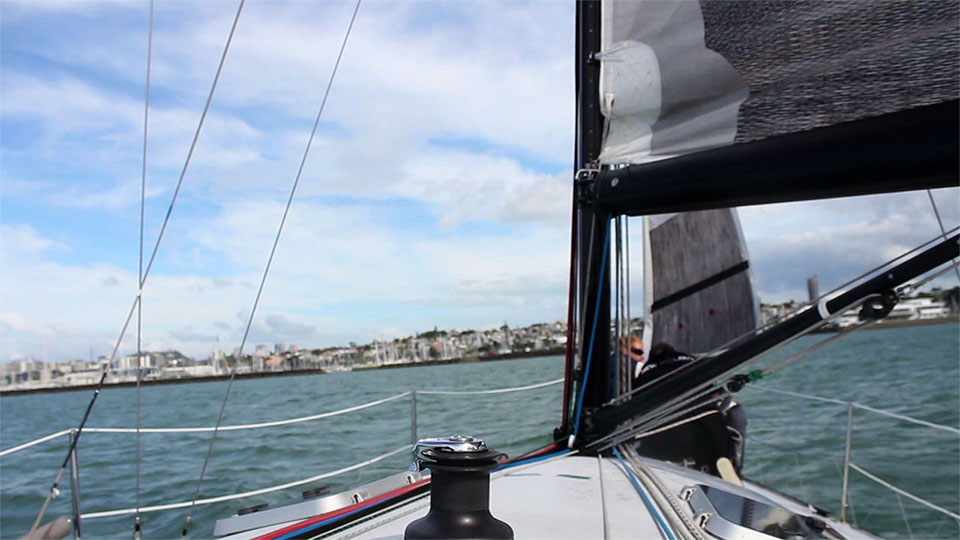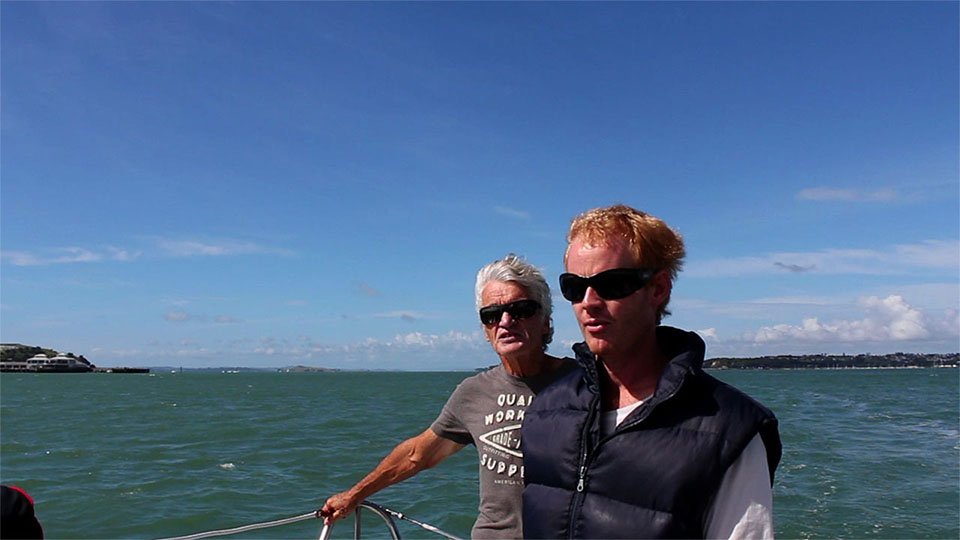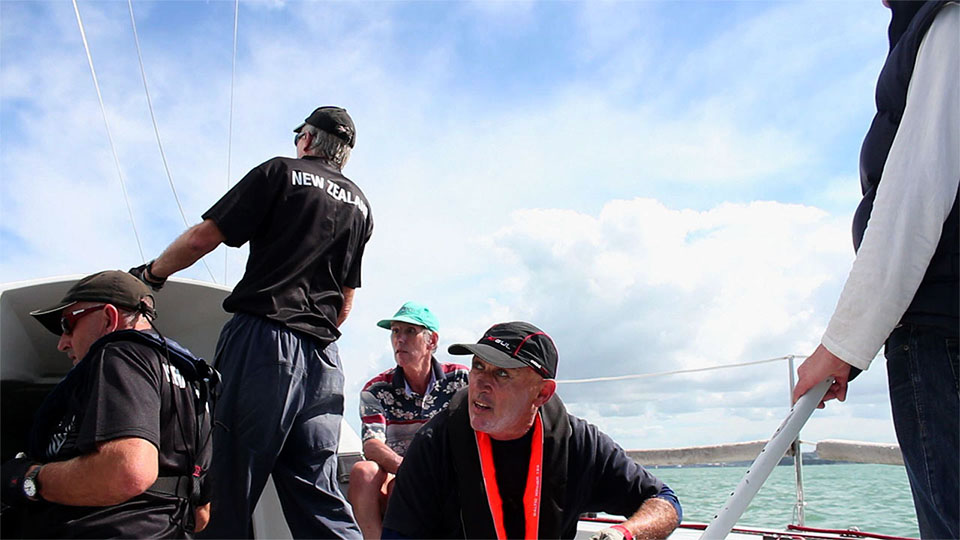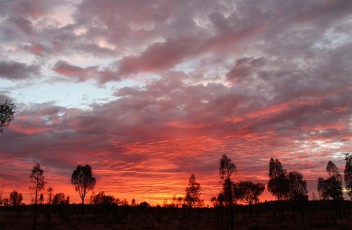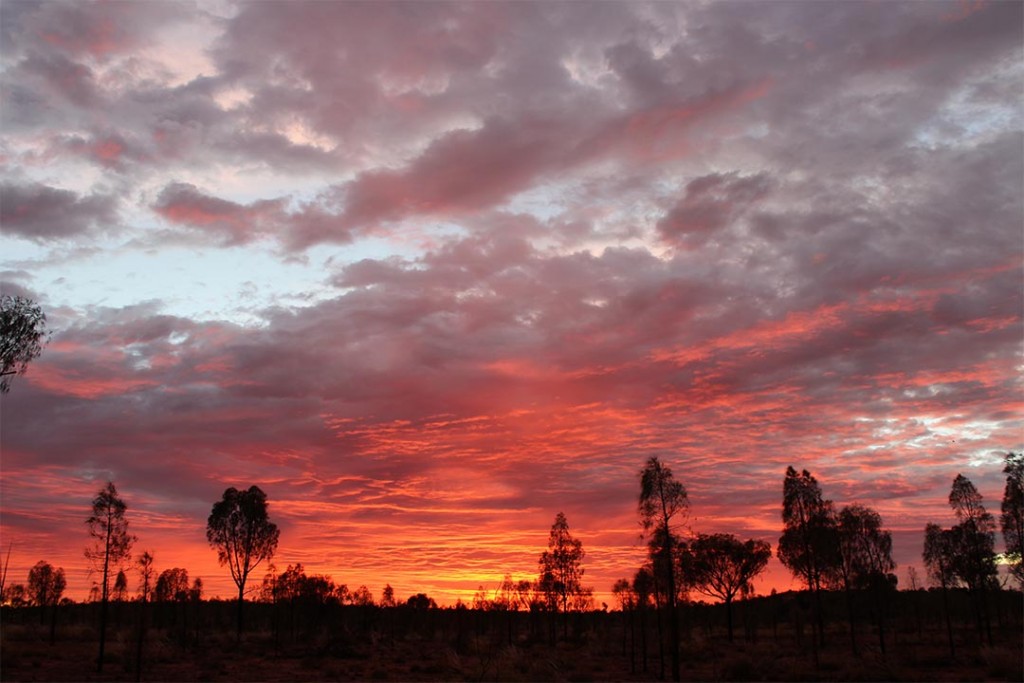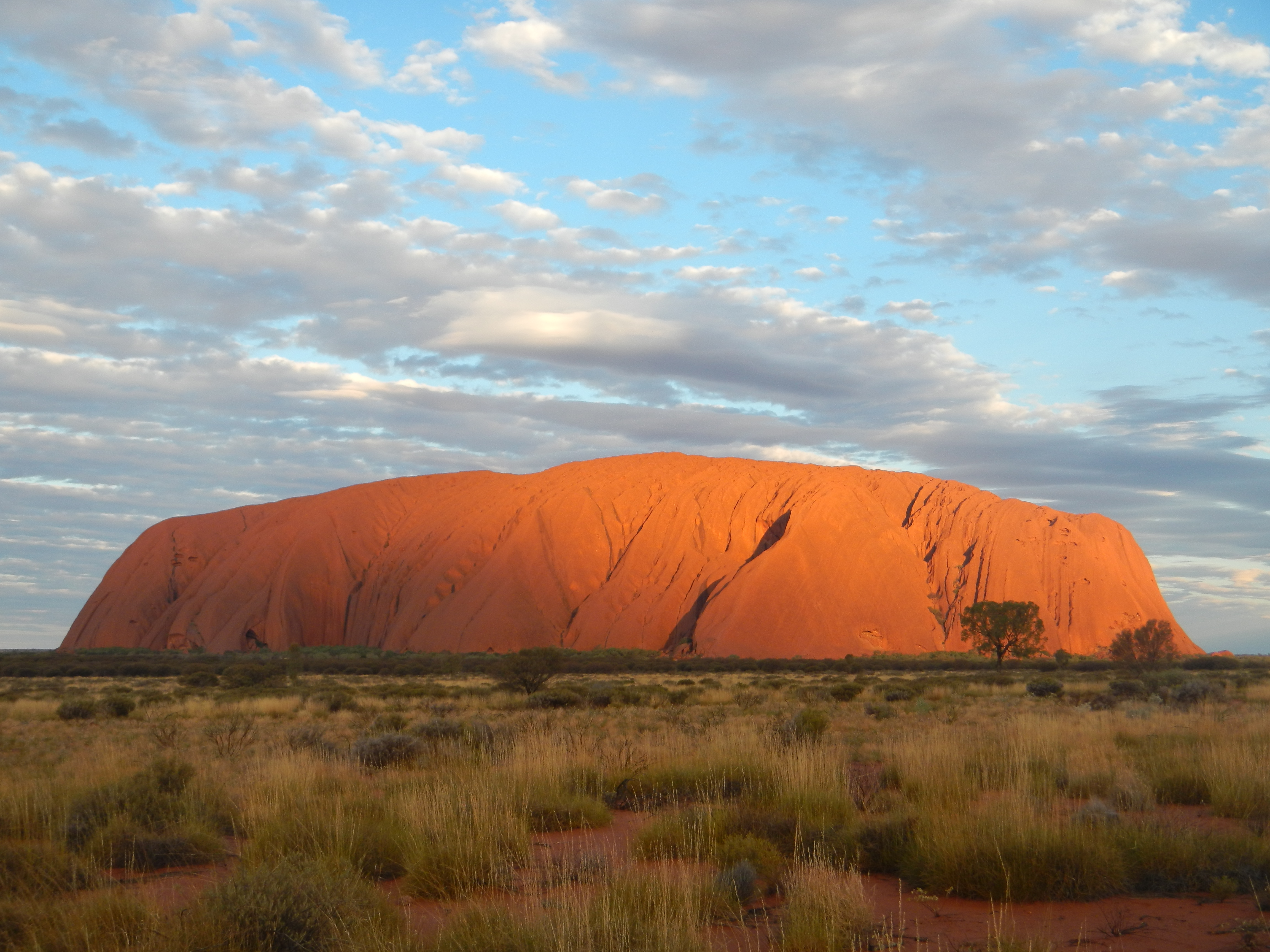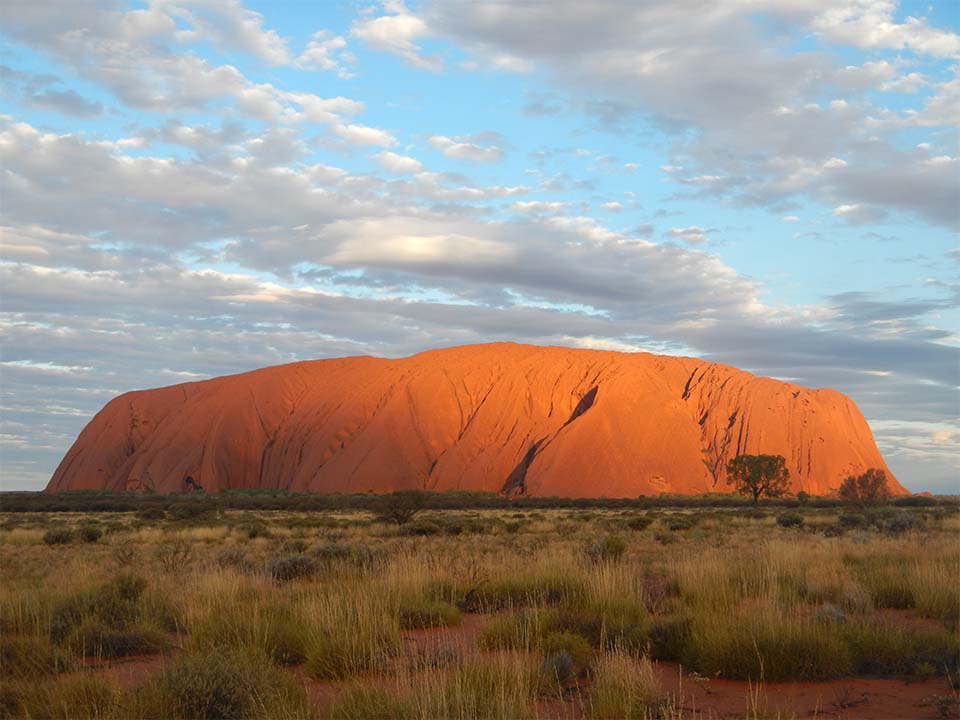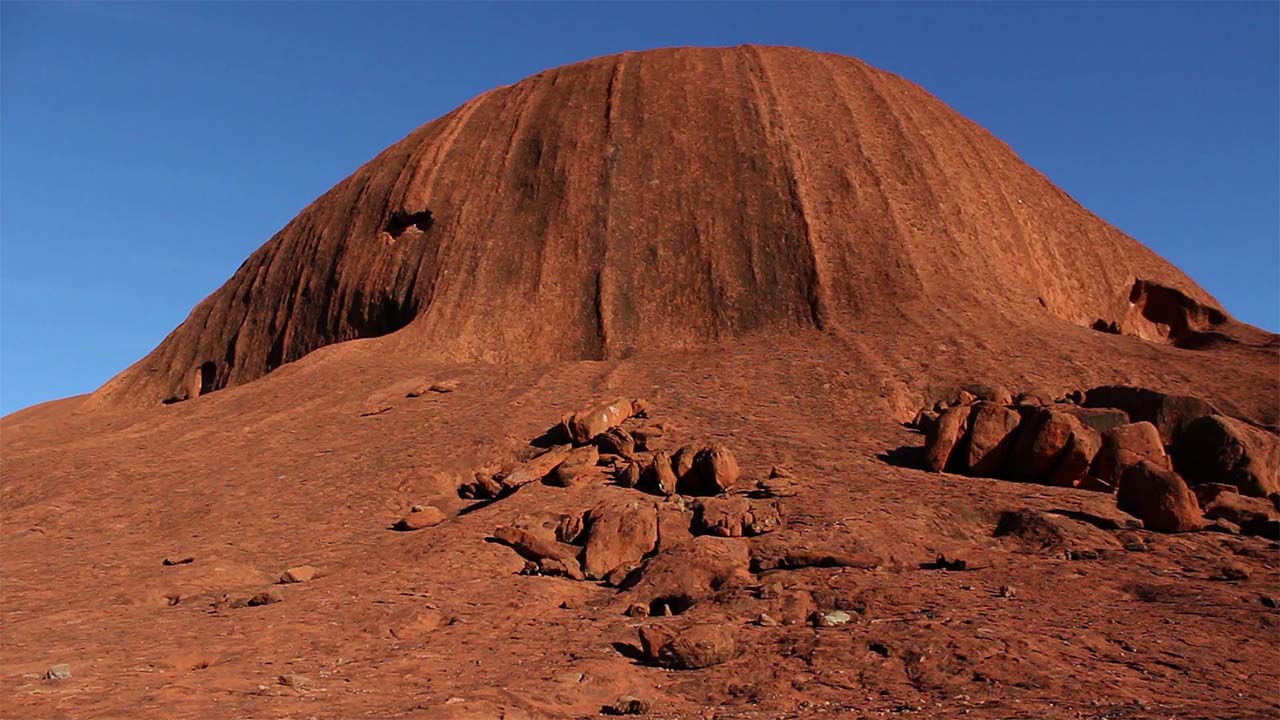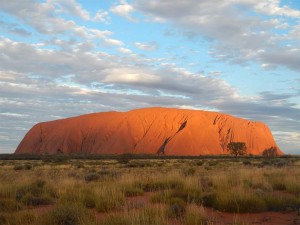I sometimes give short shrift to the idea that one of the key factors in determining a person’s success in life is the impact of seeing the successes of others who are like them. Let’s not disregard the power of personal initiative, of talent… both by nature and by nurture… and the random events that turn a dream denied into a dream delivered. However, I want to acknowledge the idea that when the weight of low expectations seems a bit much, it helps to look at someone who has felt that same weight and realized that, yes, what you’re looking for can be found, even if… or especially if you didn’t know you were looking for it.
I found what I was looking for on a boat in New Zealand.
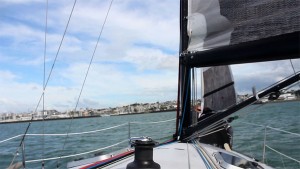
On its face, the idea of a blind sailor seems as unfathomable and counterintuitive as… well, OK, a blind filmmaker. Spade, I call you spade. Learning to read the water by the feel of the wind has been the ongoing challenge of my 5 to 9 life as much as learning how to communicate my vision with a considerable lack of same has been in my 9 to 5 life. I’m not quite sure what it is about the hard way that appeals to me, but sailing fits the mold perfectly.
I should note that, as I write this, I’m on a United flight from San Francisco to Chicago. I’m heading there to compete in an international sail racing championship, a competition for blind and visually impaired sailors. Learning to do this – to helm a boat with the same proficiency and skill as a fully sighted skipper, has been a consuming effort since last summer, back when navigating my way from the Mission to Union Square was still a major challenge.
the bigger challenge, though, was far more internal. I was still very much in the “don’t stick me in with the blind… insert activity here” category. Hikers, bloggers, Monopoly players, whatever activity you care to mention. If it involved palling around with other blind or visually impaired folk,I was so not interested. My catchphrase at the time was a variant of the following: “I don’t want to be in a blind hiking group. I want to be in a hiking group. Period.”
And while I am still stoked about being in a hiking group of any kind, sighted or otherwise, it’s taken since last year to get over that feeling of shame that first wraps itself around most visually impaired people when they’re invited along with others who are like them. It seems to be a forcible shove to a lower rung on the ladder. An implicit assumption that since “normal” activities with “normal” people are no longer possible… well, at least you can enjoy a special day out.
How amazingly conceited of me.
I have been on a quest to find blind people who don’t act like other blind people. This is not uncommon among the visually impaired, especially those new to the game. There is a startling lack of solidarity. It’s not that there aren’t blind people who hang out together, and it’s not that there aren’t advocacy groups (big hugs, NFB and AFB, not to mention the Lions Centers and Lighthouse organizations, which do the yeoman’s work of advocating and support, as well as being patient with people like me). However, there is a lack of what, in my film, I call “blind culture,” the way a phrase like “deaf culture” is a recognized phrase. We have heard the stories of deaf and hearing impaired individuals who turn down treatments that would return significant amounts of their hearing. I have yet to learn of a single blind person who, given the opportunity to see again, has said “Nah, I’m good.”
And here I’ve been, in San Francisco, learning to regain old skills and acquire new ones, in the face of a tug of war. On one side is the group of people, and there are a lot of them, who just want to be left alone with their handicap. On the other side are the passionate advocates who fight the good fight.
Enter blind sailing, which sits pretty squarely in the middle.
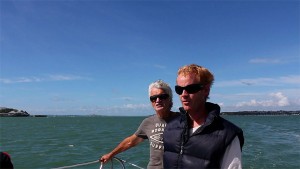
The Marin Sailing School and its sailing program for the blind and visually impaired has been, at least metaphorically, a lifeline because it starts with the assumption that on a boat, there is no such thing as a handicap. That there’s the water, the boat and the wind, and that picking up the skills behind racing a boat is right there for the taking. That’s why I’m on this plane…because the boat is a unique… or at least a rare place. It’s a place where low expectations are left on shore.
When the Palette Project hit New Zealand, our first shooting goal was to meet the Kiwi equivalent of what I had immersed myself in back in California. Auckland is one of the places where blind sailing really took off. Local sailing classes started in the 1990’s and thanks to the work of men like Don Mason and Dick Lancaster, and now continued by Vicky Sheen in the UK, the sport has gradually grown into a worldwide and organized endeavor in locations as varied as Japan, Italy and Texas. I would be directing the Blue segment in Auckland and Picton, on the North and South islands, respectively, but I still wasn’t sure what I was going to encounter. My cinematographer and I were enjoying a royal breakfast alongside the docks at the Royal New Zealand Yacht Squadron, awaiting the arrival of the six sailors – four of them visually impaired – who would be taking me on the water today.
“Hey, are you the blindey?” came an inquiry from behind me.
That’s how I met Davey Parker, lifelong Kiwi, B2 sailor (about which more anon), and someone who was utterly comfortable with his visual impairment.
Meeting someone who was just as comfortable joking about his handicap as I am. It was like having a baseball cap two sizes too small which I didn’t know I was wearing yanked off my head. I didn’t even know I was looking for the kind of easygoing equanimity, And here’s the thing: they were all like that. It was the first time I had spent time with a group of blind people who did not, as a group, act like what I thought a group of blind people acted like.
Freeze frame for a moment. Truth in advertising again requires me to admit that these are my own misguided perceptions and lowered expectations building a brick wall in front of reality. As one man we interviewed in Adelaide said, “I didn’t know what a blind person was supposed to look like. I just didn’t want to look like one.” Again, kettle, this is the pot. You’re black.
Okay, roll tape.
What I want to say is that being with these sailors, taking Lou Gehrig to heart and unashamedly cribbing from his speech… spending just one day with these grand men… on a 35 foot keelboat in the middle of Auckland Harbour, watching them jibe around the mark, hearing them trim the sails to perfection and gauge the dead patches of water by the feel of the wind on their faces. It made me see just how far I have to go. Not just in honing my own skills on the water, but in overcoming my own prejudices about what is possible, and it reminded me if I… who am living a life which is dedicated to convincing the rest of the sighted world to change perceptions, raise expectations… and for goodness sake hire a blind dude or dudette to pour your coffee or sell you an iPhone, I better do some internal maintenance first. The frustration I feel when I do something as simple as cross a busy street or find the dino kale at the Safeway and someone says that’s “amazing” or something similar? I better remember easing the mainsail by 25 degrees is not amazing or inspiring. It’s just the result of hard work.
[xyz-ihs snippet=”Palette-Post-Subscription”]
However, I am maintaining my right to be inspired. I think the only people who have the right, or at least the duty to be inspired by the achievements of others are the ones who are like them. I believe I have a duty to be inspired by a champion blind sail racer even if a sighted person shouldn’t be, because it helps to know there are other people like me who just want to do fun… not inspiring, but fun activities. I also have a duty to be inspired by a blind Fortune 500 CEO, a blind welder and a blind barista… if only I could find them, or the people who hire them.
Here’s what I… at long last… am trying to say. Just to get on this plane, I encountered four people… a pretty normal number… who wanted to offer me a seat, guide me onto an escalator or walk me down a jetway, when all I wanted was to know if the correct direction was at 11 o’clock or 10 o’clock on a virtual clock face. When I walk down any street in Chicago, San Francisco or Auckland, there will be wonderful, friendly and very well meaning people who want to help, because watching me find the correct route by finding the obstacles with my cane is not pretty and it’snot fun to watch.
However, the minute I step on the dock, along with fifteen other visually impaired racing teams from around the world, it’s out of my head. It’s out of my head because sailors, for whatever reason, seem to get it. Sighted sailors, as a group, seem to know the water is a rare place, where expectations start high. I’m competing with a bunch of blind and sighted sailors, but I’ve sailed in mainstream races too, and I sail to win. My opponents give me no quarter and none is expected.
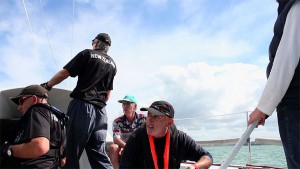
I came to New Zealand to film Blue for the Palette Project. As this segment of the story continues, I want to tell you what Blue is all about.
Spoiler alert… it ain’t sadness.
